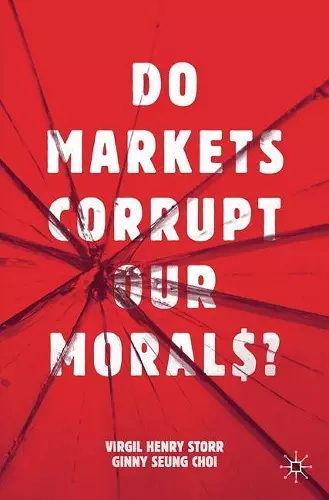Do Markets Corrupt Our Morals?
Virgil Henry Storr author Ginny Seung Choi author
Format:Paperback
Publisher:Springer Nature Switzerland AG
Published:24th Aug '19
Should be back in stock very soon

The most damning criticism of markets is that they are morally corrupting. As we increasingly engage in market activity, the more likely we are to become selfish, corrupt, rapacious and debased. Even Adam Smith, who famously celebrated markets, believed that there were moral costs associated with life in market societies.
This book explores whether or not engaging in market activities is morally corrupting. Storr and Choi demonstrate that people in market societies are wealthier, healthier, happier and better connected than those in societies where markets are more restricted. More provocatively, they explain that successful markets require and produce virtuous participants. Markets serve as moral spaces that both rely on and reward their participants for being virtuous. Rather than harming individuals morally, the market is an arena where individuals are encouraged to be their best moral selves. Do Markets Corrupt Our Morals? invites us to reassess the claim that markets corrupt our morals.
“Storr and Choi are to be commended for directly addressing the question perennially put to markets—do they corrupt us?—and demonstrating that markets need not apologize for viciousness. They also are to be praised for the form of their argument that allows students of morality and markets across and outside academic disciplines … . This reader enjoyed gathering evidence to spread the good news that the market improves our lives both materially and morally.” (Brianne Wolf, The Review of Austrian Economics, Vol. 36 (1), 2023)
“The merit of this book is that it does take on those arguments and concerns directly, and offers some persuasive answers and attractive avenues for further inquiry.” (Michael Munger, Public Choice, Vol. 185, 2ISBN: 9783030184155
Dimensions: unknown
Weight: unknown
281 pages
2019 ed.